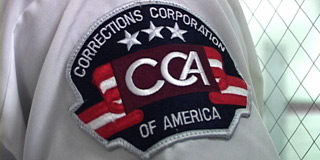Yesterday, the Detroit Free Press’s Stephen Henderson said what everyone’s been thinking about Michigan’s alarming taste for secrecy and privatization:
Privatization might sound, in theory, like the way to bring Michigan’s prison costs under control.
But because the desired outcomes in the corrections system are about more than bottom-line dollar analyses, privatization is just not likely to deliver.
We couldn’t agree more (and would add education to that list). As we pointed out yesterday, voters overwhelmingly rejected the idea government should be so small you could drown it in a tub.
Prison privatization has been around for decades, but really only picked up steam once the cost of running them started eating into our budget. The goal – as it is with every attempt to privatize a function of government – is to provide an equal or better product at a cheaper price.
The Mackinac Center was one of the earliest proponents of this, and in 1999 ran a piece commemorating the opening of Michigan’s first privatized prison. Shortly thereafter, they ran a follow-up story promoting how well the newly privatized prison was working, reporting:
“I think you will find these prisoners are well-kept,”
See the pattern? The arguments being made by the Mackinac Center in support of privatizing Michigan’s education system are the same ones they made in favor of privatizing Michigan’s prison system. Privatization will force both industries to compete in the free market they say, which will drive down costs while delivering an equal or better product.
So how’d it turn out? Not well:
When Geo ran the Michigan Youth Correctional Facility in Baldwin, the Legislature’s independent auditor concluded that the so-called “punk prison,” ranked as one of Michigan’s most inefficient and costly institutions. It also had far more violent incidents than other maximum-security prisons. The state ended the contract in 2005.
Much like Michigan’s for-profit charter school utopia. In spite of Michigan’s failed experiments in prison and education privatization, conservatives still cling to it as the solution to all of life’s ills.
And the for-profit prison system has some truly perverse incentives. Think about it: who’s going to raise a fuss about “criminals” being treated poorly? No one. So they house them in cramped quarters with poor oversight and serve them the cheapest food possible.
This is their job: saving money to benefit their employer’s bottom line. And there’s nothing wrong with making your employer happy, unless your employer is violating the basic human rights of their – as Gov. Snyder would say – “customers.”
But prison profiteers don’t stop there. In addition to cutting costs by cutting corners, private prison operators actively lobby lawmakers to keep existing laws and their stringent sentencing guidelines on the books. This, in the face of the overwhelming consensus within the justice system that we’re doing this all wrong.
And why not? Keeping things illegal means you’ll have more customers, and more customers means more money! Better yet, tack on a few years to each sentence and put it in your projected future earnings. Guaranteed income.
It’s no wonder then that we imprison more people per 100,000 than any other country on earth, and spend more on it than any other country on earth. At our current pace, kids will be attending a K12 Inc school while GEO manages our justice system and Chik-Fil-A administers marriages.
After the Revolutionary war, Americans didn’t think to themselves: hell, let’s just privatize it. We established a government to protect the very rights that had been violated.
Do you trust GEO to protect your “consumer rights?”


Title is quit confusing…. nice article to read